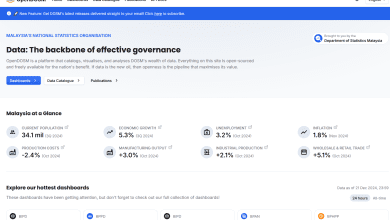AKPK Story 4 – The First Car


Financial Planning


Now, Adam looked forward going to work every day because of Aida! One evening after work, it started raining heavily. Adam was stranded at the entrance of the bank when he caught sight of Aida, who similarly, was also waiting for the rain to subside. Adam invited her for a cup of teh tarik nearby and they chatted the time away. Adam walked Aida to the LRT station and later, they exchanged SMS-es. That night, Adam just couldn’t sleep!
Anticipating more of those ‘sweet’ coincidences, Adam felt that it was high time that he got himself a car. Apart from reason of convenience, it would also give him the opportunity to offer Aida lifts home. The thought of buying a car has been in Adam’s mind since he started working about a year ago but he delayed it to save up for the down payment. Delayed gratification certainly warrants discipline and patience.
Adam needed to decide whether to buy a new car or a used one. People often think that it is wiser to purchase a new car since there will be less maintenance costs compared to a used car. Many fail to take into consideration the higher depreciation amount for new cars as compared to used cars.
Of course, buying a used car has its own set of drawbacks – mainly higher maintenance costs and hidden defects with expired warranty duration. If you decide to buy a used car, it is advisable to get your trusted mechanic to examine the car first. It must also clear the JPJ inspection records for stolen vehicles, non-permissible modifications, kereta-potong, etc. Used cars normally carry a higher rate of financing costs compared to new cars. However, if you are buying it in cash, it does not have such an impact. On this score, we should possibly strive to purchase our cars in cash, if possible without any form of loans.
After much consideration, Adam decided to purchase a used car for the opportunity savings he would stand to gain from the depreciation cost. As a rule of thumb, we should ideally keep our car instalments within 15% of our take-home pay to be in a healthy financial position.
Monthly Take-home pay = 2,500 Ideal Monthly Instalment = 15% x 2,500 = 375 Intended Financing Period = 5 years Total Loan amount = 375 x 12 x 5 = 22,500From the above, it means that Adam should restrict his car loan amount to RM22,500. He quickly checked his unit trust investment statement and noted that he would be able to cash out about RM10,000 for the car down payment! He was pleasantly surprised that with the little that he invested over a few years, it had accumulated to quite a handsome sum – indeed, “sedikit-sedikit lama-lama jadi bukit!”
He found a relatively well-maintained, low-mileage and reliable second-hand car for only RM30,000. With a down payment of RM10,000, he took a RM20,000 hire-purchase loan for five (5) years with an interest rate of 4% p.a. The monthly instalment worked out to exactly RM400 {[(RM20,000 x 4% x 5) + 20,000] / 60}. His total loan commitments were about one-quarter (¼) of his take-home pay, still at an acceptable level since it does not exceed one-third (?) of his take-home pay.
Adam had to further tighten his budget as follows:
|
INCOME |
EXPENSES |
||
|
Take-home Pay |
RM2,500 |
Savings |
RM250 |
|
|
|
Life Insurance Premium |
RM250 |
|
|
|
Repayment of PTPTN Loan |
RM150 |
|
|
|
Car Instalment |
RM400 |
|
|
|
Gift to Parents |
RM400 |
|
|
|
Food |
RM450 |
|
|
|
Petrol & Toll |
RM250 |
|
|
|
Car Maintenance, Road Tax & Insurance |
RM150 |
|
|
|
Clothing & Entertainment |
RM100 |
|
|
|
Telephone Bill |
RM100 |
|
Total Income |
RM2,500 |
Total Expenses |
RM2,500 |
|
Note: Take-home pay is net of EPF & SOCSO contributions and taxes. |
|||
After revising his budget, he realised that he would be spending at least RM800 per month on his car (including petrol, toll, maintenance, road tax and insurance). He had to trim down his food and entertainment bill to retain the monthly saving and life insurance benefits. Even with those adjustments, he still came up a little short. He was truly grateful that his parents were kind enough to offer a “rebate” on his monthly contribution.
Adam now knows that owning a car is not cheap!
AKPK’s services are FREE of charge and available to ALL individuals.


